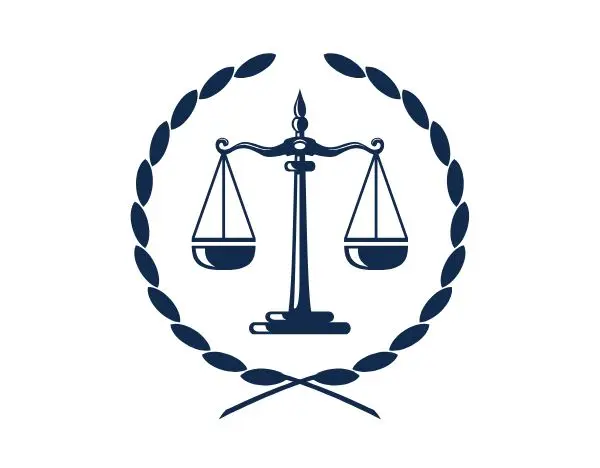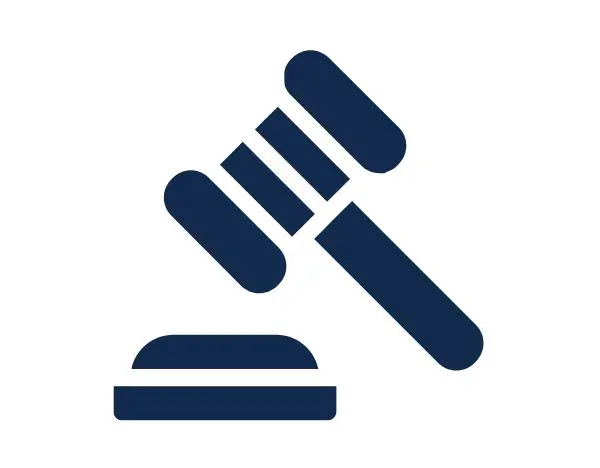In today's digital age, the internet has become an integral part of our daily lives, revolutionizing the way we communicate, conduct business, and access information. However, this interconnected world has also given rise to a new breed of criminal activity: internet fraud. At Varghese & Associates, P.C., we understand the complexities of internet fraud cases and provide robust legal representation for those facing such charges. Contact our internet fraud defense lawyers today for robust legal defense.
Types of Internet Fraud Cases We Defend

At Varghese & Associates, P.C., we have extensive experience defending clients against internet fraud charges. Our internet fraud lawyers are well-versed in the nuances of various cybercrime cases, including:
- Phishing Schemes: We defend clients accused of creating fraudulent websites or sending deceptive emails to obtain sensitive information such as passwords, credit card details, or banking information.
- Identity Theft: Our team represents individuals charged with stealing personal information online for financial gain or other fraudulent purposes.
- Credit Card Fraud: We defend against accusations of unauthorized use of credit card information obtained through hacking, skimming, or other online means.
- Investment Fraud: Our internet fraud attorneys handle cases involving alleged Ponzi schemes, fake investment opportunities, and other forms of online financial fraud.
- E-commerce Fraud: We represent clients accused of non-delivery goods, misrepresenting products, or operating fraudulent online businesses.
- Ransomware and Malware Distribution: Our team defends individuals charged with creating, distributing, or profiting from malicious software.
- Intellectual Property Theft: We handle cases involving alleged theft of trade secrets, copyrighted material, or other intellectual property through online means.
- Social Engineering Scams: Our internet fraud defense lawyers represent clients accused of manipulating individuals into divulging confidential information or performing actions that compromise security.
- Wire Fraud: We defend against charges related to using electronic communications to defraud individuals or organizations.
- Cryptocurrency Fraud: Our team is well-versed in the complexities of cryptocurrency-related fraud cases, including pump-and-dump schemes, fake ICOs, and blockchain-based Ponzi schemes.
- Data Breach and Hacking: We represent individuals accused of unauthorized access to computer systems, data theft, or selling stolen information on the dark web.
- Online Auction Fraud: Our internet fraud attorneys defend clients charged with non-delivery of goods, shill bidding, or misrepresentation in online auctions.
- Romance Scams: We handle cases involving alleged deception in online dating platforms for financial gain.
- Business Email Compromise (BEC) Scams: Our team defends against accusations of impersonating business executives or partners to obtain funds or sensitive information fraudulently.
- Advance Fee Fraud: We represent clients charged with promising future benefits in exchange for upfront payments, including variations of the infamous "Nigerian Prince" scam.
At Varghese & Associates, P.C., we understand that each internet fraud case is unique and requires a tailored defense strategy. Our internet fraud defense attorneys conduct thorough investigations, leveraging their deep understanding of both criminal law and technology to build robust defenses for our clients.
How an Internet Fraud Defense Lawyer Can Help
When facing internet fraud charges, having a knowledgeable internet fraud defense attorney by your side is crucial. At Varghese & Associates, P.C., our team of internet fraud lawyers is well-versed in the intricacies of cybercrime legislation and the technical aspects of online fraud investigations.
Our internet fraud defense attorneys work tirelessly to:
- Analyze the evidence: We meticulously examine all digital evidence, including emails, server logs, financial records, and metadata, to build a strong defense strategy.
- Challenge prosecution tactics: Our team is adept at identifying and exposing flaws in the prosecution's case, from procedural errors to misinterpretation of digital evidence.
- Protect your rights: We ensure that your constitutional rights are upheld throughout the legal process, particularly concerning search and seizure of digital assets and privacy issues.
- Navigate complex jurisdictional issues: Internet fraud cases often cross state or international boundaries, requiring a nuanced understanding of jurisdictional laws and regulations.
- Negotiate with prosecutors: When appropriate, we work to negotiate reduced charges or alternative sentencing options, always with your best interests in mind.
- Represent you in court: Should your case go to trial, our internet fraud attorneys provide aggressive courtroom representation, presenting your case clearly and compellingly to judge and jury alike.
Common Defenses in Internet Fraud Cases
Every internet fraud case is unique, requiring a tailored defense strategy. Some common defenses our internet fraud defense lawyers may employ include:
- Lack of intent: Many internet fraud charges require proof of intent to defraud. We may argue that any misrepresentation was unintentional or the result of a misunderstanding.
- Mistaken identity: Given the anonymous nature of many online interactions, we may challenge the prosecution's ability to prove you were the person who committed the alleged fraud.
- Insufficient evidence: Digital evidence can be complex and open to interpretation. We scrutinize the prosecution's evidence, looking for inconsistencies or alternative explanations.
- Entrapment: In some cases, we may argue that law enforcement induced you to commit a crime you would not have otherwise considered.
- Constitutional violations: If evidence was obtained through illegal searches or seizures, we may move to have it suppressed.
- Lack of knowledge: In cases involving complex financial transactions or technology, we may argue that you were unaware of the fraudulent nature of the activities.
Penalties of an Internet Fraud Conviction

The penalties for internet fraud can be severe and far-reaching, affecting various aspects of your life long after serving a sentence. Here's an overview of the potential penalties you may face:
- Imprisonment: Depending on the nature and severity of the fraud, convicted individuals may face substantial prison time. Federal sentencing guidelines for internet fraud can result in sentences ranging from a few months to 20 years or more for aggravated cases.
- Fines: Courts may impose significant fines, often proportional to the amount of money involved in the fraud. These fines can range from thousands to millions of dollars.
- Restitution: In addition to fines, you may be ordered to repay the victims of the fraud. This can amount to substantial sums, potentially leading to long-term financial hardship.
- Probation or Supervised Release: Even after serving a prison sentence, you may be subject to a period of probation or supervised release, during which your activities will be monitored and restricted.
- Asset Forfeiture: The government may seize assets believed to be obtained through fraudulent activities. This can include money, property, vehicles, and other valuable possessions.
- Loss of Professional Licenses: A conviction may result in the revocation of professional licenses, severely impacting your ability to continue in your chosen career.
- Employment Difficulties: A criminal record for internet fraud can make it challenging to find employment, particularly in fields that involve financial responsibilities or access to sensitive information.
- Travel Restrictions: Some countries may deny entry to individuals with fraud convictions, limiting your ability to travel internationally.
- Loss of Voting Rights: In some states, a felony conviction may result in the temporary or permanent loss of voting rights.
- Damage to Personal and Professional Relationships: The stigma of a fraud conviction can strain personal relationships and professional networks.
- Civil Lawsuits: Beyond criminal penalties, you may face civil lawsuits from fraud victims seeking to recover their losses.
- Restrictions on Internet Use: As part of a sentence or probation terms, your internet access may be monitored or restricted, which can significantly impact daily life in our digital age.
- Difficulty Obtaining Loans or Credit: A fraud conviction can severely damage your credit score and make it challenging to obtain loans, mortgages, or credit cards in the future.
- Housing Challenges: Some landlords may be hesitant to rent to individuals with fraud convictions, potentially limiting your housing options.
- Long-Term Financial Consequences: The combination of fines, restitution, legal fees, and reduced earning potential can lead to long-term financial instability.
Protect Your Future: Act Now
Don't face internet fraud charges alone. The consequences are too severe to risk your defense with inexperienced counsel. At Varghese & Associates, P.C., we're ready to fight for your rights and freedom. Contact us today for a confidential consultation and take the first step towards safeguarding your future.
What should I do if I receive a target letter in an internet fraud investigation?
If you receive a target letter, it means you're under federal investigation for internet fraud. Don't panic, but act quickly. Avoid speaking to investigators without legal counsel present. Contact Varghese & Associates, P.C. immediately. We can help you understand your rights, prepare for potential questioning, and develop a proactive defense strategy.
Can I be charged with internet fraud if I unknowingly participated in a scheme?
Yes, you can still face charges even if you were unaware of your involvement in fraudulent activities. However, lack of intent can be a strong defense. At Varghese & Associates, P.C., we can help demonstrate your innocence or mitigate charges based on your level of knowledge and involvement.
How long do internet fraud investigations typically last?
The duration of internet fraud investigations can vary widely, from a few months to several years, depending on the complexity of the case and the number of individuals involved. Our team at Varghese & Associates, P.C. works to expedite the process when possible and keeps you informed throughout the investigation.
What's the difference between civil and criminal internet fraud cases?
The government prosecutes criminal cases and can result in fines and imprisonment. Civil cases are typically brought by fraud victims seeking financial compensation. At Varghese & Associates, P.C., we handle both types of cases and can advise you on the best course of action for your situation.
Can internet fraud charges be expunged from my record?
The possibility of expungement depends on various factors, including the specific charges, the outcome of your case, and state laws. While federal convictions are generally not expungeable, some state convictions may be. Our team can advise you on your options for clearing your record post-conviction.
What if the fraudulent activity occurred on the dark web?
Dark web activities can complicate internet fraud cases due to the anonymity involved. However, law enforcement has sophisticated methods for tracking dark web activities. If you're facing charges related to dark web fraud, Varghese & Associates, P.C. has the technical knowledge to challenge evidence and protect your rights.
How does international jurisdiction affect internet fraud cases?
Internet fraud often crosses international borders, which can lead to complex jurisdictional issues. Multiple countries might claim the right to prosecute. At Varghese & Associates, P.C., we're well-versed in international cybercrime laws and can navigate these complex legal waters on your behalf.
What's the role of digital forensics in internet fraud cases?
Digital forensics plays a crucial role in both prosecution and defense of internet fraud cases. It involves analyzing digital devices and online activities to gather evidence. Our team works with top digital forensics experts to examine and, when necessary, challenge the prosecution's digital evidence.
Can a strong compliance program protect my business from internet fraud charges?
While a robust compliance program can't guarantee protection from charges, it can significantly reduce risks and potentially mitigate penalties if charges do occur. Varghese & Associates, P.C. can help your business develop and implement effective compliance strategies to prevent internet fraud.
What should I do if I suspect I'm under surveillance for potential internet fraud?
If you suspect you're under surveillance, avoid discussing your case with anyone except your federal white-collar crime lawyer. Don't delete files or clear browsing history, as this could be seen as destroying evidence. Contact Varghese & Associates, P.C. immediately for guidance on protecting your rights and preparing your defense.

